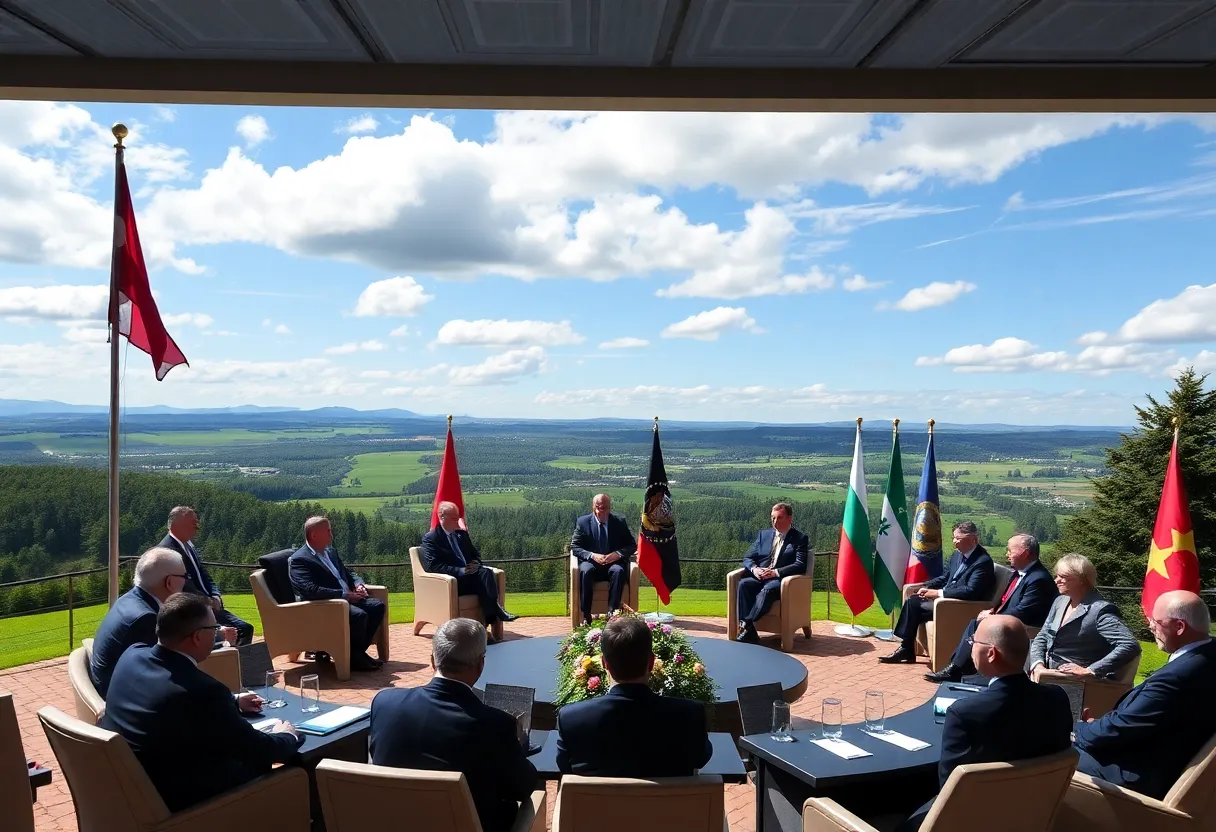News Summary
President Donald Trump cut short his attendance at the G7 summit due to rising tensions between Israel and Iran. His early departure was influenced by Israel’s airstrikes on Iranian nuclear facilities and concerns over Iran’s nuclear ambitions. While mingling with other leaders and discussing various global issues, Trump emphasized his commitment to U.S. interests over collective negotiations. His sudden exit left analysts worried about the impact on international relations, particularly regarding ongoing conflicts in the Middle East and Ukraine.
Trump Exits G7 Early Amid Israel-Iran Tensions
In a surprising turn of events, President Donald Trump made the decision to cut short his attendance at the G7 summit which kicked off on June 16, 2025, in the scenic locale of Kananaskis, Alberta, Canada. The reason? An intensifying conflict brewing between Israel and Iran that grabbed the President’s attention and prompted his early departure.
While at the summit, Trump pointed out that Iranian leaders love to engage in discussions, but he wasn’t convinced that any real progress was being made regarding their nuclear ambitions. The ongoing tensions escalated as Israel ramped up its aerial bombardment campaign against Iran’s nuclear facilities, and Trump felt it was crucial to act swiftly. In fact, he even took to social media to issue a stark warning to Iran, suggesting that it should rein in its nuclear program “before it’s too late” and urging for a mass evacuation from Tehran.
Star-Studded G7 Gathering
Before his unexpected exit, Trump mingled with the other G7 leaders and even posed for a group photo, radiating an air of camaraderie. Canadian Prime Minister Mark Carney took a moment to extend his gratitude to Trump for his personal leadership in navigating global affairs, emphasizing the significance of the summit.
The discussion at the summit went beyond just the pressing Israel-Iran issue; it also included critical matters like the situation in Ukraine. In fact, leaders from various nations sought to build consensus on international relations. Yet, Trump appeared more inclined toward taking decisive action independently rather than waiting for collaborative negotiations.
Controversy Over G8 Decision
During his time with other leaders, Trump didn’t shy away from expressing his views on the before-mentioned expulsion of Russia from the G8 back in 2014, claiming it disrupted stability in worldwide relations. His remarks sparked conversations about the need for a cohesive global strategy in addressing ongoing conflicts.
Among the positive strides made during the summit was the signing of a trade deal between the U.S. and the UK, aimed at softening tariffs on various goods, although it did leave out tariffs on steel. This was a move welcomed by some, but there was still the lingering shadow of Trump’s previous significant tariffs, which included 50% on steel and 25% on autos. As always, trade negotiations were on the agenda, with expectations that further talks would come within 30 days following his bilateral meeting with Prime Minister Carney.
A Focus on Iran
The G7 leaders collectively issued a joint statement, reiterating their stance that Iran should never be allowed to possess nuclear weapons. The push for broader de-escalation of hostilities was also evident, with many urging for a ceasefire in Gaza amid the rising tensions.
As Trump departed the summit, the atmosphere shifted, with analysts expressing concerns about the implications for international security and economic relationships. The President’s sudden exit raised eyebrows, especially since he was absent from further discussions which many felt were essential for addressing the Ukraine crisis and other Middle Eastern conflicts.
Italy’s Prime Minister Giorgia Meloni and other leaders were also expected to delve into informal talks about the troubles in the Middle East, however, Trump’s withdrawal could hinder the momentum needed to push for solutions.
The Bottom Line
Trump’s decision to leave early from the G7 summit reflects his administration’s tendency to prioritize U.S. interests, particularly when international crises align with those interests. As the world watches, it will be interesting to see how this evolving situation impacts global relations, trade discussions, and the ever-complex dynamics of the Middle East.
Deeper Dive: News & Info About This Topic
- Associated Press: Trump Exits G7 Early Amid Israel-Iran Tensions
- New York Times: G7 Summit 2025 Overview
- BBC News: G7 Live Coverage
- Reuters: G7 Meeting Amid Global Tensions
- Fox News: Carney Cuts Short Questions Ahead of G7 Summit
- Wikipedia: G7
- Google Search: G7 Summit 2025
- Google Scholar: G7 International Relations
- Encyclopedia Britannica: G7
- Google News: Trump G7 2025

Author: Anaheim Staff Writer
The Anaheim Staff Writer represents the experienced team at HEREAnaheim.com, your go-to source for actionable local news and information in Anaheim, Orange County, and beyond. Specializing in "news you can use," we cover essential topics like product reviews for personal and business needs, local business directories, politics, real estate trends, neighborhood insights, and state news affecting the area—with deep expertise drawn from years of dedicated reporting and strong community input, including local press releases and business updates. We deliver top reporting on high-value events such as major conventions at the Anaheim Convention Center, including NAMM and VidCon, exciting games at Angel Stadium and Honda Center, and developments at Disneyland Resort Our coverage extends to key organizations like the Anaheim Chamber of Commerce and Visit Anaheim, plus leading businesses in hospitality, entertainment, and innovation that power the local economy As part of the broader HERE network, including HERECostaMesa.com, HEREHuntingtonBeach.com, HERESantaAna.com, and HERELosAngeles.com, we provide comprehensive, credible insights into Southern California's dynamic landscape.




